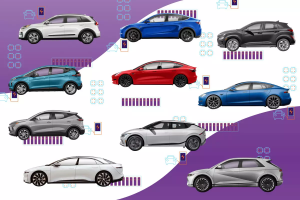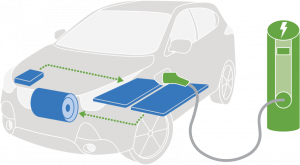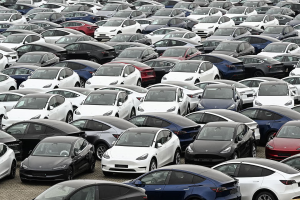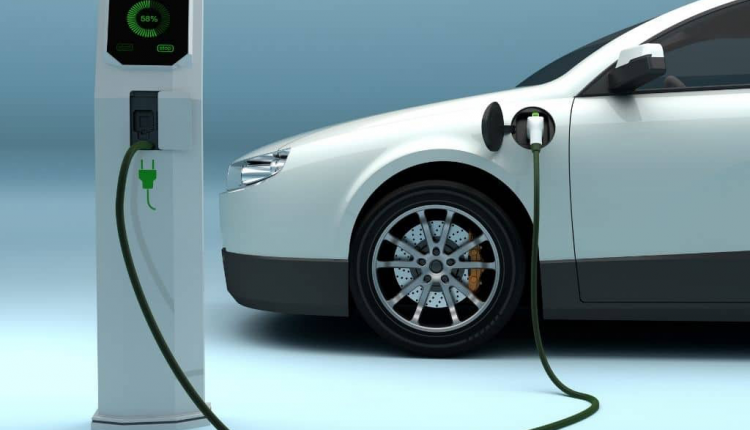The Rise of Electric Cars and Their Future in Pakistan
Exploring the future of electric vehicles in Pakistan
Electric vehicles (EVs) are quickly gaining traction worldwide, transforming the global automotive industry as a sustainable alternative to conventional fossil fuel-powered vehicles. The shift towards electric cars is driven by technological advancements, environmental concerns, and global economic trends. While countries in North America, Europe, and Asia are leading the charge in adopting EVs, Pakistan has also entered the race. This blog delves into the electric car revolution, its significance, and the challenges and opportunities it presents for Pakistan.
Understanding the Global Push for Electric Cars
The global demand for electric cars is fueled by three main factors: environmental concerns, advancements in EV technology, and policy support from governments aiming to reduce carbon emissions. As concerns about climate change escalate, countries are intensifying efforts to cut down greenhouse gases. Transportation, as one of the highest contributors to emissions, is a critical area to address. EVs, which produce zero tailpipe emissions, are an essential part of achieving this goal.

EV technology has also seen significant advancements, from improved battery efficiency to faster charging infrastructure. Modern EV batteries offer increased energy storage capacity, enabling longer driving ranges that rival those of traditional cars. Charging technology is advancing to provide quicker, more accessible charging options in cities worldwide. In line with these developments, countries such as the United States, China, and members of the European Union have introduced subsidies, tax credits, and other incentives for EV buyers, creating a policy-driven momentum for their adoption.
Pakistan’s Electric Vehicle Landscape
Pakistan’s automotive industry has been dominated by traditional gasoline-powered vehicles, and EV adoption is still in its early stages. However, with its high air pollution levels, especially in urban centers, Pakistan faces increasing pressure to shift to cleaner energy alternatives. EVs offer a promising solution to address Pakistan’s environmental and economic concerns, and the government has recognized this. In 2019, the government launched the National Electric Vehicle Policy (NEVP) aimed at promoting the adoption of EVs across the country by setting a goal to achieve a 30% shift to electric vehicles by 2030.

Despite these policy intentions, Pakistan’s EV market faces several unique challenges. These include limited charging infrastructure, a nascent supply chain for EV components, and a consumer market still adjusting to the idea of electric vehicles. To overcome these obstacles, Pakistan must adopt a multi-faceted approach, blending policy incentives, infrastructure investment, and public education on the benefits of EVs.
Key Components of Pakistan’s National Electric Vehicle Policy
The National Electric Vehicle Policy (NEVP) lays out a framework for EV adoption in Pakistan, addressing both two- and four-wheeled vehicles. Key components of the NEVP include:
- Tax Incentives: The government has reduced import duties on EV parts and exempted certain EV components from sales tax, making EVs more affordable. Imported EVs benefit from reduced customs duties, encouraging car manufacturers to bring EVs into the Pakistani market.
- Charging Infrastructure: The policy emphasizes the need for an extensive EV charging network. Public and private sectors are encouraged to invest in EV charging stations to make electric cars viable for the average consumer.
- Local Manufacturing Incentives: The NEVP provides incentives for local companies to manufacture EVs, reducing reliance on imports and fostering a sustainable domestic EV industry. The policy supports hybrid and plug-in hybrid vehicles as transitional options, as they help ease the shift from fossil fuels to electric power.
- Awareness and Education: Public education on the benefits of EVs, as well as training programs for technical staff, are part of the policy to build a knowledge-based approach to adoption. This is crucial to addressing consumer hesitancy about EVs and increasing acceptance among the general population.
While these steps are promising, Pakistan still needs to align its policy framework with infrastructure development and industry support to realize the full benefits of EV adoption.
Challenges Facing the Adoption of Electric Vehicles in Pakistan
Although the NEVP has laid out a strategic direction, Pakistan’s EV market faces several significant hurdles:
Limited Charging Infrastructure
One of the primary obstacles to EV adoption in Pakistan is the lack of widespread charging infrastructure. Public charging stations are scarce, especially outside major urban centers, making it difficult for EV owners to travel long distances. Establishing a reliable and efficient network of charging stations is essential to build consumer confidence in EVs.
High Initial Costs
Electric cars tend to have a higher upfront cost compared to traditional vehicles, largely due to the high price of lithium-ion batteries. Although Pakistan has introduced some tax incentives, these are not yet sufficient to make EVs affordable for the average consumer. Local manufacturing could reduce prices, but this will require substantial investment in manufacturing capabilities and supply chains.
Energy Supply Challenges
Electric vehicles will require a reliable power grid to charge, but Pakistan already faces energy shortages. The power grid needs to be stabilized and expanded to support additional demand from EV charging. Investing in renewable energy sources, such as solar and wind, could provide a sustainable power source for EVs, aligning with Pakistan’s environmental goals.
Consumer Awareness and Confidence
Many Pakistani consumers are unfamiliar with EV technology and may harbor misconceptions about its practicality, reliability, and long-term costs. Public education campaigns and transparent information about the benefits and limitations of EVs could help bridge this knowledge gap and build consumer trust.
Opportunities for Pakistan’s Economy and Environment
Despite these challenges, the potential benefits of EV adoption in Pakistan are substantial, extending beyond environmental gains to economic and societal advantages.
Reducing Oil Imports and Strengthening Energy Independence
Pakistan imports a significant portion of its fuel needs, which places a strain on the national economy. EV adoption could decrease the country’s dependency on oil imports, saving foreign exchange and contributing to energy independence. By shifting towards electric mobility and coupling it with investments in renewable energy, Pakistan could reduce its economic vulnerability to fluctuating global oil prices.
Creating Job Opportunities
The shift to electric vehicles has the potential to create new job opportunities across multiple sectors. From manufacturing and assembling EVs to installing and maintaining charging infrastructure, the EV industry could offer thousands of new jobs, boosting Pakistan’s economy. Additionally, training programs related to EV technology could provide new skillsets for Pakistan’s workforce.
Improving Air Quality and Public Health
Urban air pollution is a severe issue in cities like Lahore and Karachi, with vehicle emissions being a major contributor. EVs produce no tailpipe emissions, meaning that widespread adoption could significantly improve air quality, leading to better public health outcomes. Cleaner air can reduce health costs associated with respiratory illnesses, benefitting both individuals and the healthcare system.
Potential Pathways for Accelerating EV Adoption
For Pakistan to realize the benefits of EVs, strategic steps need to be taken to overcome current barriers and accelerate adoption:
- Public-Private Partnerships: Collaborations between the government and private companies can expedite the establishment of charging infrastructure. Telecom companies, energy providers, and automotive manufacturers could join forces to build an extensive network of charging stations, particularly in high-traffic areas.
- Encouraging Local Manufacturing: Providing incentives for local companies to produce EV components can reduce costs and make EVs more accessible. With local manufacturing, Pakistan could lower prices, enhance the availability of spare parts, and reduce dependency on foreign supply chains.
- Fostering Renewable Energy Integration: To support EVs sustainably, Pakistan should expand its renewable energy sources. Utilizing solar, wind, and hydropower to charge electric vehicles could address the dual goals of reducing fossil fuel dependency and curbing carbon emissions.
- Supporting Public Awareness Campaigns: The government and private sector can collaborate on educational campaigns to inform consumers about the economic and environmental benefits of EVs. Building consumer confidence in EV technology is essential for wider adoption.
The Road Ahead for Electric Cars in Pakistan
While the transition to electric vehicles presents challenges, it also holds great promise for Pakistan. With the NEVP providing a roadmap and a growing awareness of the environmental and economic benefits of EVs, Pakistan is well-positioned to make meaningful strides in this area. However, realizing the potential of EVs will require sustained government commitment, infrastructure investments, and supportive policies that adapt to the evolving needs of the market.

By addressing these challenges, Pakistan can accelerate its progress towards a sustainable, environmentally friendly future while setting a foundation for economic growth. As electric vehicles slowly gain traction, they may eventually become a common sight on Pakistani roads, contributing to a cleaner, greener, and more energy-independent nation. The journey will require determination, innovation, and collaboration, but the long-term rewards make the effort worthwhile for Pakistan’s economy, environment, and public health.

